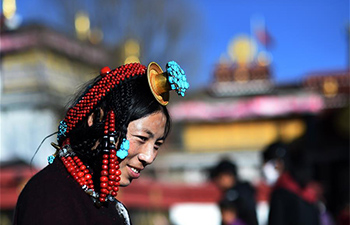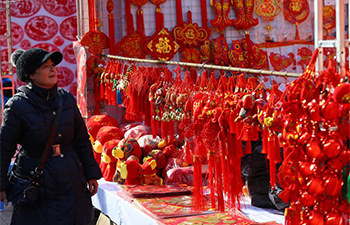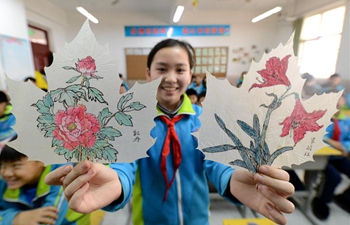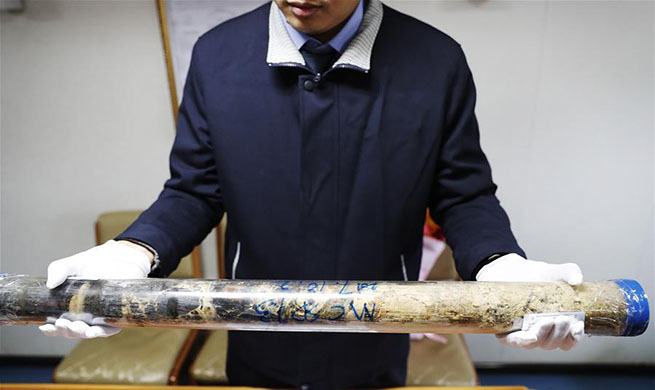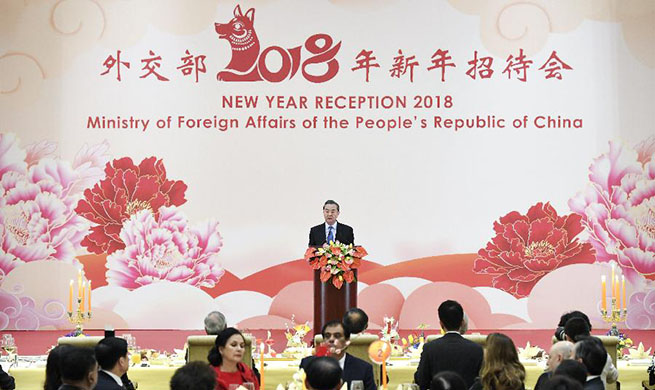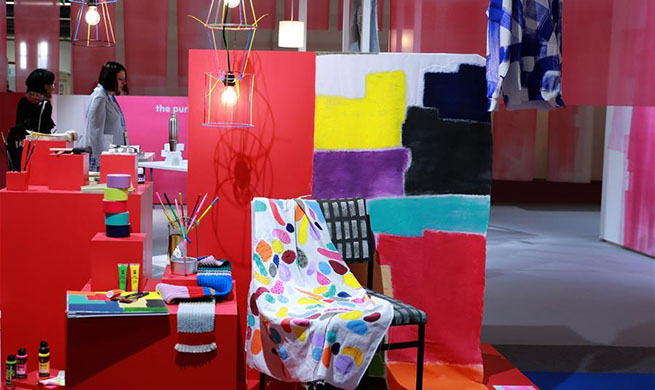by Julia Pierrepont III
PARK CITY, the United States, Jan. 28 (Xinhua) -- The Sundance Film Festival wrapped up here Sunday night was a little more subdued than last year's and lacked any obvious future Oscar-contending films, but it shone as a showcase for women filmmakers and women's stories.
Founded in 1978, the annual Sundance Film Festival is the premier independent film festival in America, with a long tradition of showcasing innovative and multi-cultural films and an emphasis on showcasing a higher percentage of female-directed and minority-centric films than Hollywood in general.
"WOMEN BREAKING BARRIERS"
At Sundance's "Women Breaking Barriers" panel on Jan. 20, an important part of the festival, Hollywood Foreign Press Association's Elisabeth Sereda told Xinhua: "Of the top 100 films in Hollywood, only 8 percent had female directors, 10 percent female writers and only 2 percent female cinematographers."
Melissa Verdugo of Women In Film told Xinhua: "The statistics are abysmal in an industry that calls itself progressive. This year, 37 percent of the features at Sundance are directed by women -- the Sundance team is getting us that much closer to parity."
Sunday marked the festival's much anticipated 40th annual Sundance Award Ceremony, and their selections this year went a long way to showing just how much they put their money where their mouth is as far as celebrating women and minorities artists is concerned.
In the spirit of the renewed female liberation movement that has been sweeping the industry since the disturbing revelations of sexual misconduct began circulating last October, and in recognition of the creative accomplishments of women and minorities, many of this year's honorees and award winners were women and minorities.
Reed Moreno, Emmy Award-winning director and cinematographer of "The Handmaiden's Tale," told Xinhua: "Variety is the spice of life. Why wouldn't we want to see everybody's perspective and point of view? There is a whole new world of opportunity, and storytelling, and things we haven't seen before when women's voices are heard."
PRIZE WINNERS
With 110 features and documentaries from 29 countries and regions being screened during the festival, there were plenty of crowd-pleasers and innovators in contention for the top prizes.
The coveted U.S. Grand Jury Prize -- Drama -- went to female writer/director Desiree Akhavan's "The Miseducation of Cameron Post," starring Chloe Grace Moretz in a gut-wrenching insider's view of a hard core Christian camp designed to stamp out lesbian tendencies in teenage girls.
The Best Feature Director Prize was nabbed by another female director, Sara Colangelo, for "The Kindergarten Teacher," a tension-building tale of a child savant poet trapped in a poor and uncaring family.
The Waldo Salt Screenwriting Award was taken by Christina Choe for "Nancy," a film co-sponsored by Women In Film, a dark saga about a disturbed young woman who believes she was stolen from her real parents as a child.
The Special Jury Award for Excellence in Filmmaking went to Reed Morano for her insightful helming of the poignant, post-apocalyptic "I Think We're Alone Now."
The Special Jury Award for Breakthrough Filmmaking went to Chinese-American director Bing Liu's "Minding the Gap," an insider view of the lives of young skateboarders struggling to find their path in life, while Valeria Bertuccelli carried off The Special Jury Prize for Acting for her insightful "Queen of Fear."
The Special Jury Prize for Ensemble Acting went to China's "Dead Pigs," a deftly-directed darkly comic look by first time Chinese-American female writer/director Cathy Yan about the trials and tribulations of a remote Chinese village battling with a porcine blight decimating their pig population.
The World Cinema Grand Jury Prize for Best Directing went to another female writer/director Sandi Tan for "Shirkers" about a group of eager, young filmmakers in 1990's Singapore struggling to produce their first, hip feature film with youthful enthusiasm.
OTHER STANDOUT FEMALE FILMS
Other standout female-centric or female directed films worthy of note were "Colette," "Eighth Grade," "The Tale," and "Hereditary."
And, "Our New President" includes a carefully researched view of the rampant gender-based bias against America's first serious female presidential candidate, Hillary Clinton, as it deftly tracks the co-opting of the 2016 presidential election and anti-Hillary diatribes by hackers.
Women In Film President Cathy Shulman summed up one of the most persuasive arguments for inclusion and diversity: "As artists and filmmakers, we are the storytellers of our cultures... The more stories about each other, the better we understand each other. It's hard to understand others if you can't hear them speak."




